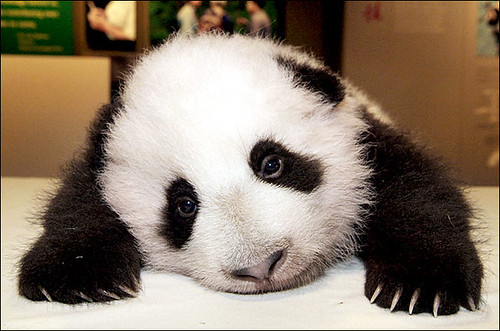Wine tasting
Published by Panda on Sunday, April 27, 2008 at 3:06 PMFor a while, there's been a long-standing debate within my family, started by my father. The question at the core of the debate is whether wine is priced higher because it is considered to be good, or if wine is considered to be good because it is priced higher. His contention is very much the latter, with my cousin, my mom and my girlfriend mostly favoring the former.
To be fair, there's a bit of definitional looseness around the concept of "good" in this case. My dad's position implicitly assumes that the quality of wine is entirely defined by its phenomenal characteristics, e.g. taste, smell, etc. This, combined with his contention about wine pricing, would thus imply that people that enjoy expensive wines are simply suckers with airs of pretention. However, it's entirely possible that some people also find value in the signaling that comes with the consumption of expensive goods, in which case, a bottle couldn't really be good unless it was expensive and people knew it. That being said, no one in our family really thinks about the debate this way. For the sake of our arguments, if a wine is good, it's good, regardless of the price or label.
The results from a recent study from Wine Economics lends some new evidence to this debate. This from the introduction:
In this paper, we use a large sample of more than 6,000 US blind tastings, compiled by food and wine critic Robin Goldstein. Blind tastings offer the opportunity to isolate the experience of the wine itself from psychological confounds related to its price, presentation or published expert ratings.The paper is short, but it has a lot of interesting results in it. For one, the study finds that so-called wine experts, i.e. those with training of some sort, do tend to like more expensive wines. One study reference that I thought was interesting was the following:
We investigate the relationship between price and subjective appreciation of wines, when the price is unknown to the tasters. Subjective appreciation is measured by overall ratings assigned to wines by individual participants.
Our main finding is that, on average, individuals who are unaware of the price do not derive more enjoyment from more expensive wine. In fact, they enjoy more expensive wines slightly less.
There is, however, some research expressing skepticism towards wine ratings and their use for the average wine drinker. According to Quandt (2007), many wine ratings do not actually convey any information, nor is there substantial agreement in ratings by experts. Consistent with this view, Weil (2007) investigates whether wine descriptions of experts actually convey any information to wine consumers. This is tested by having testers match wine descriptions to wines. In a similar setup to Weil (2001, 2005), tasters are asked to distinguish the odd one out of three different glasses of wine. Only about 50% of the participants can distinguish the odd one out, and of those that manage to do it, only about half can correctly match a wine critic’s description of the wine with the wine itself - which is no better than a random guess.
To be fair, there's a bit of definitional looseness around the concept of "good" in this case. My dad's position implicitly assumes that the quality of wine is entirely defined by its phenomenal characteristics, e.g. taste, smell, etc. This, combined with his contention about wine pricing, would thus imply that people that enjoy expensive wines are simply suckers with airs of pretention. However, it's entirely possible that some people also find value in the signaling that comes with the consumption of expensive goods, in which case, a bottle couldn't really be good unless it was expensive and people knew it. That being said, no one in our family really thinks about the debate this way. For the sake of our arguments, if a wine is good, it's good, regardless of the price or label.
The results from a recent study from Wine Economics lends some new evidence to this debate. This from the introduction:
In this paper, we use a large sample of more than 6,000 US blind tastings, compiled by food and wine critic Robin Goldstein. Blind tastings offer the opportunity to isolate the experience of the wine itself from psychological confounds related to its price, presentation or published expert ratings.The paper is short, but it has a lot of interesting results in it. For one, the study finds that so-called wine experts, i.e. those with training of some sort, do tend to like more expensive wines. One study reference that I thought was interesting was the following:
We investigate the relationship between price and subjective appreciation of wines, when the price is unknown to the tasters. Subjective appreciation is measured by overall ratings assigned to wines by individual participants.
Our main finding is that, on average, individuals who are unaware of the price do not derive more enjoyment from more expensive wine. In fact, they enjoy more expensive wines slightly less.
There is, however, some research expressing skepticism towards wine ratings and their use for the average wine drinker. According to Quandt (2007), many wine ratings do not actually convey any information, nor is there substantial agreement in ratings by experts. Consistent with this view, Weil (2007) investigates whether wine descriptions of experts actually convey any information to wine consumers. This is tested by having testers match wine descriptions to wines. In a similar setup to Weil (2001, 2005), tasters are asked to distinguish the odd one out of three different glasses of wine. Only about 50% of the participants can distinguish the odd one out, and of those that manage to do it, only about half can correctly match a wine critic’s description of the wine with the wine itself - which is no better than a random guess.
